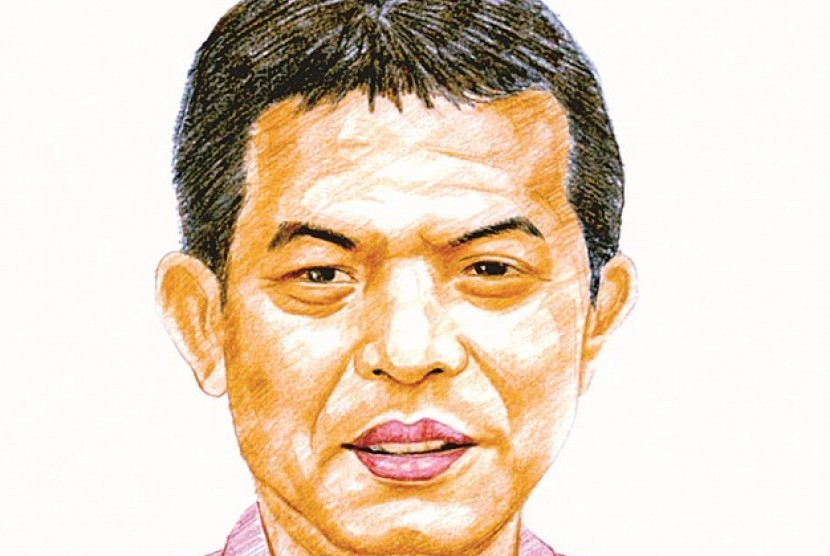By Ikhwanul Kiram Mashuri
In less than two years, Arab revolution or dubbed as ‘Arab spring’ has toppled four regimes – Tunisia, Egypt, Libya and Yemen. Only then, the mass movement has changed a lot of aspects, including the fiqh (Islamic jurisprudence -Ed) of power and ulamas’ view related to people’s revolution.
Related to Fiqh of power, Ahlusunnah Waljamaah (Aswaja) ulamas (or clerics) from the first 3rd century of Hijri year (9th century AD) viewed, “It is haraam (forbidden) for people to oppose the legitimate authority with weapons” except by valid reasons such as when the regime had asked people to do maksiat (sinful actions) or prevented to perform their religion.
These views can be read on Imam al-Mawardi’s book Al Hakam As Sulthaniyah. Al-Mawardi (972-1058) was the famous Aswaja ulama and the first Aswaja ulama to write a book about politics and power comprehensively. Valid reasons were needed to third century’s ulamas’ point of view, in order to minimize the potentiality of people’s revolt against the ruling regime.
Revolt has been feared to cause bloodshed. If this to happen, it is easy to spread fitnah (prejudice) and disunity within ummah (people), between supporter and opponent of ruling regime. Therefore, the best way to contend dhaalim (ruthless) regime is through sabr (patience).
Here, Syeikh al-azhar Dr Ahmad Thayib and Syeikh Yusuf Qaradhawi have different point of views. Both ulamas underlined “Haraam” in this matter if opposing ruling regime with niyat (intention) to do revolt or take up arms since the very beginning. Arab people revolutions, in their point of views, considered done in peace, whether it is in Tunisia, Egypt, Yemen, Libya and even in Syria currently.
Syeikh al-Azhar and Syeikh Qaradhawi emphasize, when dhaalim (tyrant) has touches blood, honour and property, while all constitutional manners have been taken and still failed, then it is permissible for the people to demonstrate. If this still fails, people are permissible to fight for changes of regime.
Related to revolution in some of Arab counties, there are slight differences between Syeikh Qadharawi and Syeikh al-Azhar. Qadharawi stated, it was halaal to overthrow Qadafi regime who has ruled Libya for more than 40 years. The same view was also taken related Bashar al-Assad regime in Syria.
On the contrary, Syeikh al-Azhar stated changes are possible as long as performed in peace. Although he admitted, demonstrators have the right to defend themselves when facing ruling regime’s violence.
The development of fatwa (official statement or order from an Islamic religious leader) about power is interesting to take note. It might be too early and has not yet been formulized, yet it laid some strategic meanings. First, political changes (read: overthrown ruling regime) is permissible with violence consequences from the ruling regime.
Secondly, people’s revolution has made “freedom”as the prime values to fight for before anything else. Qaradhawi said, implementing freedom is presedence before implementing sharia (tahkikul huriyah moqoddamun ala tatbikis syari’ah). What is interesting, except Syeikh al-Azhar and Syeikh Qadharawi, almost all Arab ulamas still choose to compromise or even supporting ruling regime when people’s revolution arise.
They stated, stability and reformation are better than revolution aor total changes. These group of ulamas are against revolution due to its potential for nation disunity. In fact, Syrian ulama, Syeikh Ahmad Hasun and Syeikh Muhammad Saíd al-Buti, emphasize to support President Bashar al-Assad’s regime.
Their point of views, if Bashar al-Assad regime to fall, Islam and Syria will vanish together (idza dzahaba nizomul Assad dzahabal Islamu wa Suriah ma’an). The support for ruling regime generally also expressed by Tunisia, Libya, Saudi Arabia and Yemen’s ulamas. It is become ironic when people’s revolution happened to be a success in some of Arab countries.
These ruling regime supporter ulamas then had the same fate as their ruler: deserted by their ummat (people). This condition then made Syeikh al-Azhar and Syeikh Qaradhawi “stars”. Moreover, Qaradhawi was not only release fatwa, but he was also stood down in the middle of demonstrators as he did in Egypt.
While Syeikh al-Azhar, in the beginning he supported President Husni Mubarak. But then, he became ‘vocal’ when new acts for al-Azhar release this institution from government control. Moreover, he then issued al-Azhar documents which became a turning point of such a most influential institution of religion in the world.
On documents released in October 2011, al-Azhar and his ulamas condemned all violence acts done by ruling regime to their people whatever the reasons were. Progress in Arab, including religion point of view to politics and power, is surely interesting to watch. Most important, Middle East ulamas’ point of views and fatwa will certainly be influential to Indonesia.
(Indira Amaranti)


